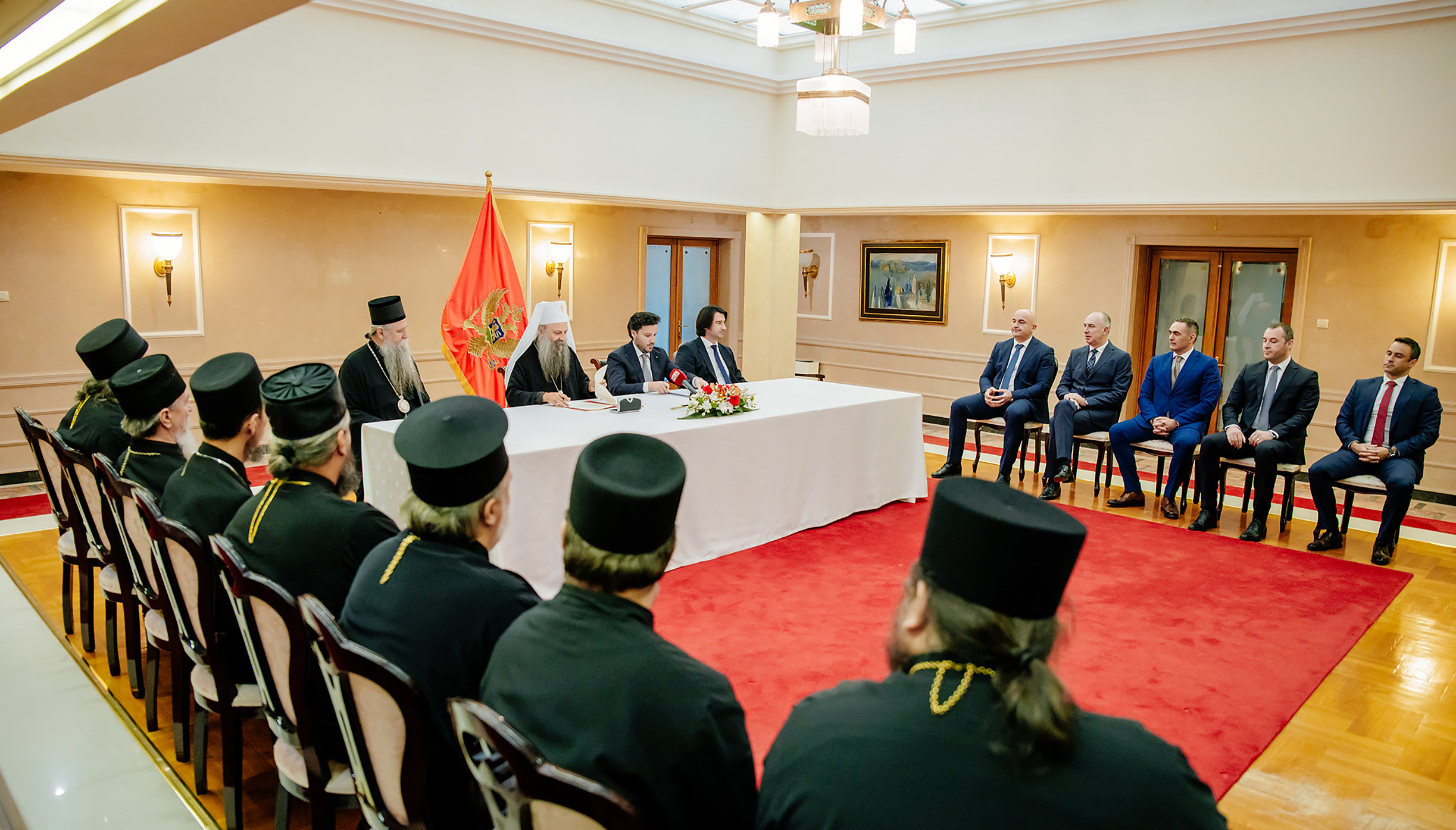Montenegro’s trajectory toward democracy was fundamentally shaped—and constrained—by its dominant party system.
For decades, all aspects of political life were marked by the long-standing rule of the DPS. Although the 1997 split created an appearance of pluralism, the DPS retained overwhelming control, resembling other dominant-party systems such as Mexico under the PRI orJapan under the LDP.
The 2020 governmental change, however, cannot be considered a democratic breakthrough. The process was hijacked by non-state and non-political actors, most notably the Serbian Orthodox Church and intelligence structures linked to Serbia and Russia.
Rather than a case of democratic alternation, Montenegro became a case study of foreign malign interference in domestic politics.
From this, two conclusions follow:
First, the 2020 events did not contribute to democratic transformation; instead, they led to constant democratic backsliding, as documented by Freedom House. The idea that a church-led protest, supported externally, could democratize a country is paradoxical. Applying typologies of democracy (such as those by Merkel) to Montenegro today reveals decline across all five dimensions: the electoral regime, political rights, civil liberties, horizontal accountability, and the effective power to govern.
Concrete examples confirm this erosion:
- The 2019–2020 clerical protests sparked by the controversial Law on Freedom of Religion or Belief and the Legal Status of Religious Communities, which the Serbian Orthodox Church and its supporters argued would enable the state to seize church property. These protests played a major role in mobilizing the opposition and contributed to the defeat of the DPS in the 2020 parliamentary elections.
- The Belvedere / Cetinje episcopal enthronement protests in September 2021, where protests and violent clashes followed the enthronement of Metropolitan Joanikije in Cetinje, seen by many as a politicized act with religious, national identity, and state symbolism deeply entwined.
- Actions under Minister Vesna Bratić: dismissal or suspension of educational officials and withholding or delaying funding. For example, the Faculty of Montenegrin Language and Literature (FCJK) went several months without funding, had its security service removed, and professors protested against what they described as political pressure.
Scandals of illicit election funding, including allegations involving Do Kwon, who was accused of providing money to Montenegrin political actors in violation of campaign finance laws. Although later convicted for document forgery while attempting to flee Montenegro, the affair highlighted systemic weaknesses in oversight of political financing.
Second, democratization cannot be reduced to a simple change of government. What matters is the nature and quality of that change.
Five years after the 2020 alternation, Montenegro is governed by a fragile and heterogeneous coalition of parties that has relied not on institution-building, but on clientelistic and clandestine networks. Many of the same structural weaknesses persist, including politicized appointments, pressure on academic and cultural institutions, and weak mechanisms for accountability.
As a result, Montenegrin society today lacks a clear vision for how to properly conclude its democratic transition. Foreign interference, political instability, and the absence of a coherent strategy or elite consensus continue to undermine progress and sustain democratic erosion.
Montenegro, far from being a success story, has instead become a champion of democratic backsliding.
Danilo Kalezic. Montenegrin political scientist

The articles published in the “Opinions” column reflect the personal opinion of the author and may not coincide with the position of the Center



